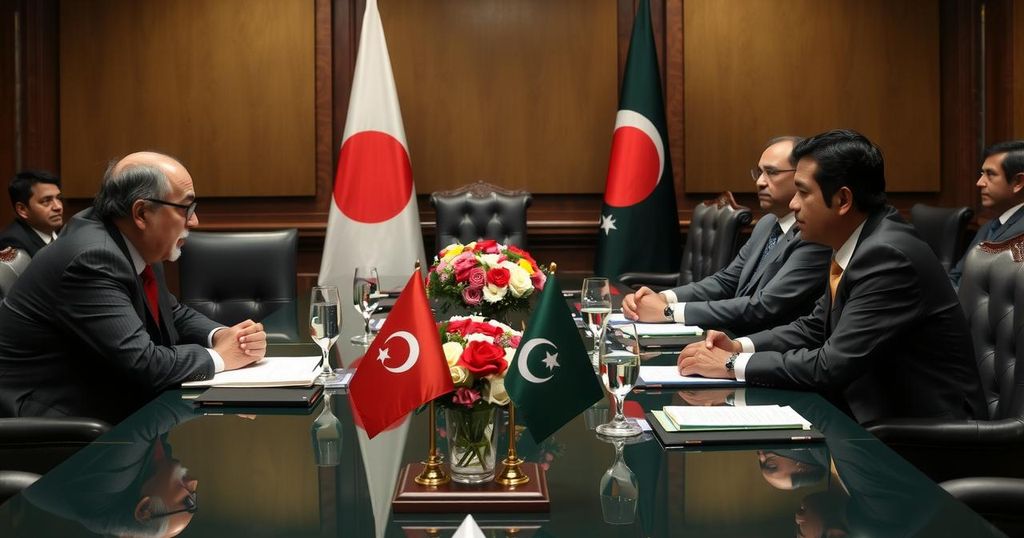Pakistan’s Foreign Minister to Visit Bangladesh Amid Thawing Relations

Pakistan’s Foreign Minister Ishaq Dar is set to visit Bangladesh next month, the first such visit in over a decade. Following political upheaval in Bangladesh and the removal of restrictions on Pakistani exports, relations are reportedly improving. Muhammad Yunus, the interim government chief adviser of Bangladesh, will also reciprocate the visit to Islamabad as both nations seek to strengthen bilateral ties.
The Foreign Minister of Pakistan, Ishaq Dar, is scheduled to make an official visit to Bangladesh next month, which will mark the first visit of a Pakistani foreign minister to the nation in over ten years. This development signifies a potential thaw in the historically strained relations between Islamabad and Dhaka, particularly following the ousting of Prime Minister Sheikh Hasina in August of the previous year. Dar’s visit comes at the invitation of his Bangladeshi counterpart, and both nations are reportedly eager to enhance bilateral ties.
During a recent press conference in Islamabad, Minister Dar expressed his enthusiasm for the visit, referring to Bangladesh as a “brother country.” In a reciprocal gesture, Muhammad Yunus, the chief adviser of the interim Bangladeshi government, has accepted an invitation to visit Islamabad on dates yet to be determined. The diplomatic exchange indicates a significant shift, with both nations having recently engaged in high-level discussions, leading to the lifting of restrictions on Pakistani exports to Bangladesh and the initiation of direct maritime trade routes.
Previously tense relations under Sheikh Hasina’s leadership were characterized by her alignment with India, which contributed to a lack of engagement with Pakistan. However, after Hasina’s departure and the subsequent rise of Yunus, relations seem to be improving. Notably, the interim government has removed security clearance requirements for Pakistani citizens seeking Bangladeshi visas, signaling a willingness to mend ties. The easing of travel restrictions may carry security implications for India, particularly concerning concerns about extremism in the region.
As the geopolitical landscape shifts, recent incidents, including violence against Hindus and the arrest of Hindu monk Chinmoy Krishna Das, have raised alarms regarding potential instability within Bangladesh. The interim government has also requested the return of Hasina, who is currently in exile in India after fleeing during mass protests. The evolving dynamics between Bangladesh, Pakistan, and India represent a pivotal moment in South Asian politics, with implications that could affect regional stability.
The diplomatic relations between Pakistan and Bangladesh have historically been complex and often strained, largely defined by political leadership and regional alliances. Sheikh Hasina’s government maintained a close partnership with India, often at odds with Pakistan, leading to numerous unreciprocated efforts from Pakistan to improve ties. The recent political upheaval, characterized by anti-government protests and Hasina’s eventual ouster, has opened a window for potential rapprochement between Dhaka and Islamabad. The role of the interim government under Muhammad Yunus and the changing dynamics in regional relationships are key factors influencing the current geopolitical situation.
In summary, the upcoming visit of Pakistan’s Foreign Minister to Bangladesh represents a notable shift in diplomatic relations between the two nations, particularly following the political changes in Bangladesh. The mutual exchanges of visits signify a commitment to strengthen ties and address historical grievances. However, the broader implications of these developments for regional security and stability, especially concerning India, remain to be closely monitored as these nations navigate their evolving political landscapes.
Original Source: www.business-standard.com








